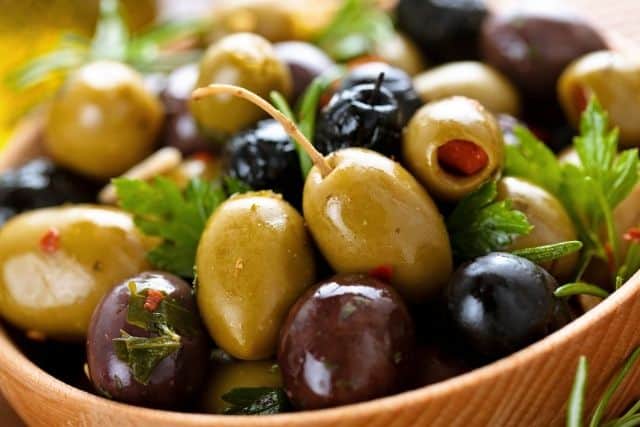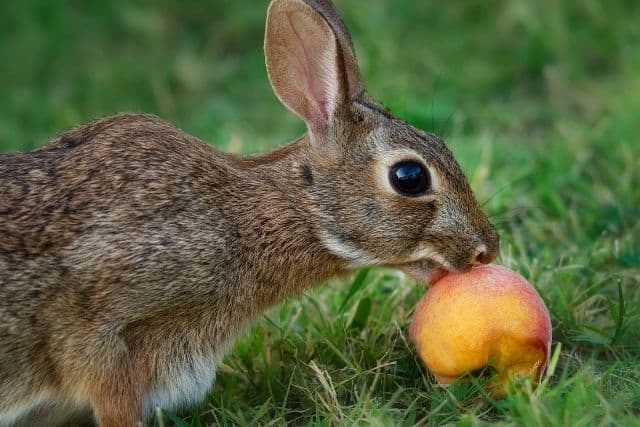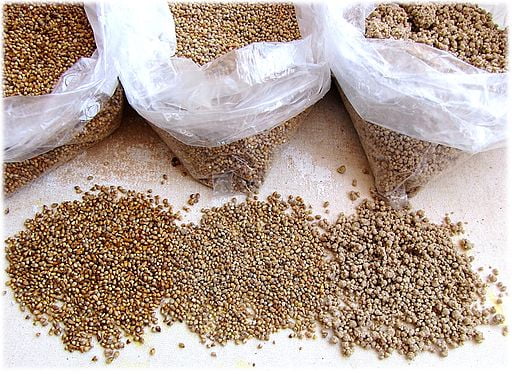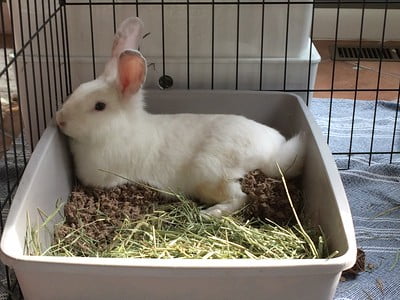Last Updated on February 24, 2023 by Marjon Ramos
While olives are not toxic to rabbits if they accidentally eat some, giving them a large amount of olives is not a good idea due to their high sodium levels and low levels of nutrients.
Olives (pickled, canned, or bottled) contain 38.9 mg of sodium per 2 g (1 olive).
While the limit of sodium for rabbits per day is 5-10 g/kg-1. According to the BSAVA Manual of Rabbit Medicine, excess sodium could result in reduced growth.
Based on that information, we can conclude that it’s okay for rabbits to eat small amounts of olives.
Just treat it like junk food. It’s okay as long as you don’t go overboard with it.
Remember, a rabbit’s stomach is extremely sensitive.
Be mindful when giving your rabbit olives because your rabbit could also suffer from digestive distress like diarrhea and GI stasis if they are fed too many olives.
Now that I’ve given you the gist of the article, read on for a more in-depth explanation:
Table of Contents
How many olives can a rabbit eat?
Let’s use this nutrient constraint calculator for rabbits to know how many olives you can feed your rabbits.
Nutrient Constrain Calculator For Rabbits
As you can see from the calculator above, feeding your rabbits small amounts of olives (100g) is perfectly safe and still within their nutritional constraints.
The problem with feeding large amounts of olives to rabbits is that your rabbits will eat olives in lieu of hay.
Hay is the most important part of your rabbit’s diet. Your rabbit’s diet should consist of at least 80% hay.
Risk of overfeeding olives to rabbits.

Here are the different risks you should know when a rabbit is overfed with olives:
Reduced growth
As I said earlier, olives contain a lot of sodium.
While sodium is helpful in the regulation of pH and nutrient transport, too much of it is reported to reduce growth in rabbits.
While it’s hard to meet the criteria for this to actually be a problem (> 8–10 kg sodium chloride (NaCl) kg−1 diet), you have to remember that there are other sources of sodium that you might not be aware of in your rabbit’s diet.
Diarrhea
Diarrhea is also possible, especially if a rabbit is overfed olives when it’s their first time eating them.
Every time you’re planning to feed a rabbit something new, you have to introduce it slowly over time to avoid triggering an imbalance in their gut flora and reduce the risk of developing diarrhea.
GI stasis
GI stasis could also be a problem if a rabbit is fed a large amount of olives and, in turn, does not meet its required fiber for the day.
Keep in mind that rabbits need a lot of hay in order for their guts to function properly.
Choking
While uncommon, your rabbit could also choke on olive pits if they are not removed properly.
Healthy alternative to olives as treats.

If you’re planning on giving olives as treats to your bunnies, consider this healthier alternative instead:
Just remember to only give your rabbits treats two times a week to prevent any digestive distress.
FAQ (Frequently Asked Questions)
Can rabbits eat olive oil?
While olive oil isn’t poisonous to rabbits, you should still limit giving your rabbit unless absolutely necessary.
You can give a small amount of olive oil to rabbits who are suffering from constipation.
Can rabbits eat olive tree leaves?
No, rabbits can’t eat olive tree leaves. It’s harmful to them to chew on or consume them.
Can rabbits eat olive branches?
No, rabbits can’t eat olive tree branches. It’s harmful to them to chew on or consume them.
Can rabbits eat black olives?
Yes, rabbits can eat black olives. Just make sure you only give your rabbits small amounts of black olives because they’re high in salt and fat.
Can rabbits eat dried olive leaves?
No, dried olive leaves are toxic to rabbits. Don’t let your rabbits eat or chew on dried olive leaves.
Conclusion
Rabbits can eat olives in small amounts. It’s only bad for rabbits if they are not introduced slowly or if they are fed large amounts of olives all at once.
Olives have large amounts of salt and fat and could cause digestive distress if fed in large amounts.
Olive trees’ branches and leaves are toxic to rabbits. Don’t let your rabbits eat or chew on olive branches or leaves.
Cite this article:
Related Articles
- Can Rabbits Eat Asparagus? 9 things you need to know.
- Can Rabbits Eat Tomatoes? What You Need To Know.
- Can Rabbits Eat Watermelon? What You Need To Know.
- Can Rabbits Eat Grapes? What You Need To Know.
- Can Rabbits Eat Broccoli? What You Need To Know.
- Can Rabbits Eat Apples? What You Need To Know.
- Can Rabbits Eat Cabbages? What You Need To Know.
- Can Rabbits Eat Strawberries? What You Need To Know.
- Can Rabbits Eat Bananas? What You Need To Know.
- Can Rabbits Eat Oranges? 9 things you need to know.
- Can Rabbits Eat Blueberries? Here’s Why.
- Can Rabbits Eat Spinach? Your Questions Answered.
- Can Rabbits Eat Cucumbers? Here’s Why.
- Can Rabbits Eat Pickles?
- Can Rabbits Eat Celery? What you need to know.
- Can Rabbits Eat Radishes: Everything You Need To Know
Sources and further reading
- Patry, Karen, et al. The Rabbit-Raising Problem Solver: Your Questions Answered about Housing, Feeding, Behavior, Health Care, Breeding, and Kindling. Storey Publishing, 2014.
- Understanding the Basics of Rabbit Care
- Basic Rabbit Care
- Rabbit Basics for the Beginner
- The importance of diet in rabbits
- BSAVA Manual of Rabbit Medicine
- Harris et al., 1984b; Marai et al., 2005
- Olives, pickled, canned or bottled, green Nutrition Facts & Calories




